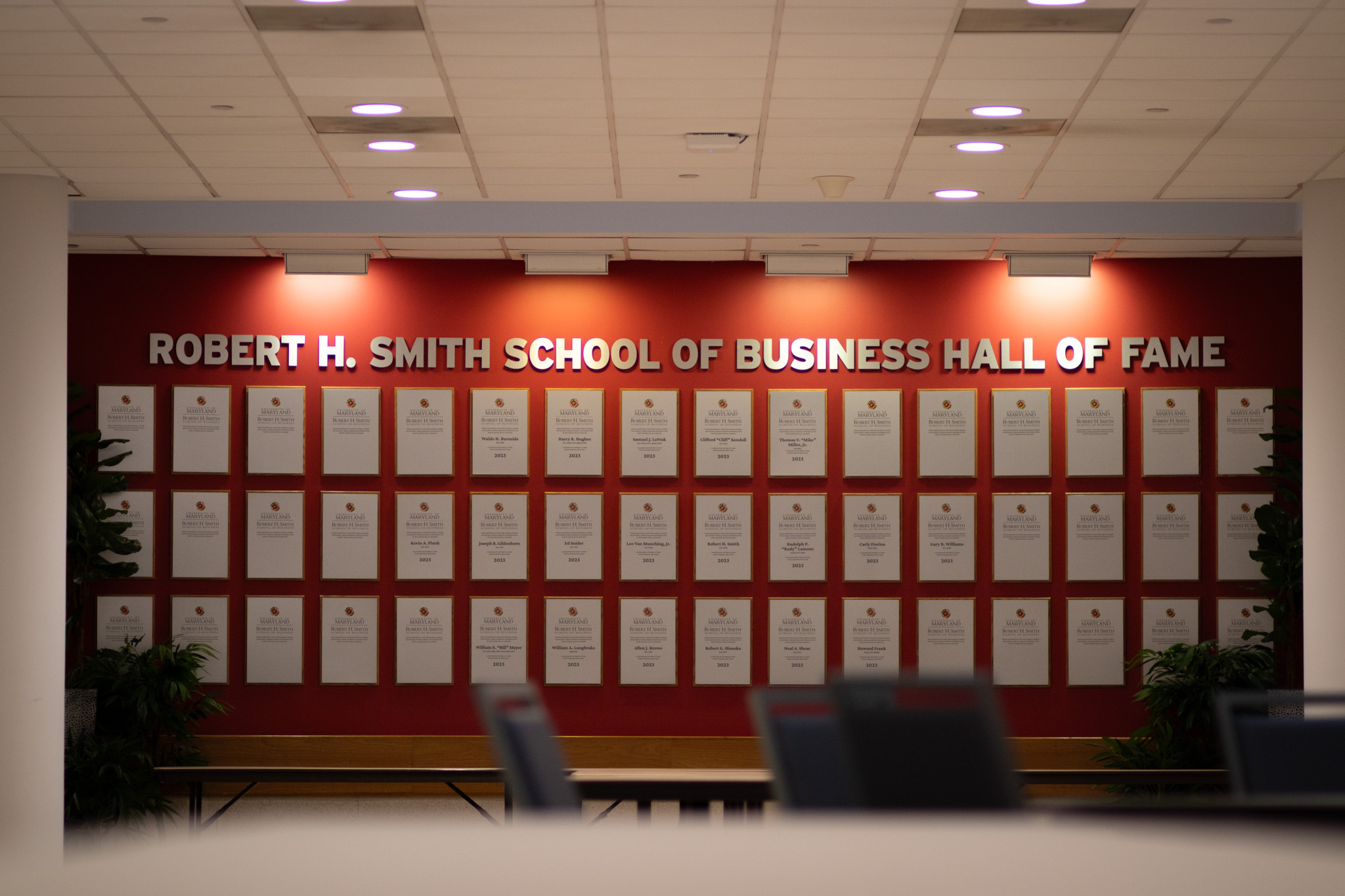The University of Maryland placed fifth in the nation for undergraduate entrepreneurship in rankings released earlier this month by The Princeton Review and Entrepreneur magazine.
The rankings are based on several factors, including universities’ offerings of entrepreneurship courses and team-based entrepreneurship opportunities, according to The Princeton Review. The ranking methodology also considers student enrollment in entrepreneurship courses and programs.
Dean Chang, co-founder of the Academy for Innovation and Entrepreneurship at this university, said the top-five placement is because of resources available to students.
“We are constantly offering more opportunities for students in any major to learn and practice innovation and entrepreneurship skills, and then apply them to creating solutions to society’s grand challenges,” Chang, who is this university’s chief innovation officer, said in a statement to Maryland Today.
Senior computer science major Wesley Smith thinks extracurricular entrepreneurship programs like Startup Shell, which he is executive director of, were instrumental in achieving such a high ranking. Startup Shell is a student-run organization that helps fellow students find resources and connections to further their startups and business ventures.
“Part of the top five ranking [criteria]… is the out of the classroom category,” Smith said. “I think what you learn in the classroom might be too rigid and you don’t get the perspective of that in the real world.”
[UMD professor wins the world’s most prestigious criminology award]
While university-run organizations can have an abundance of resources available for students, Smith believes student-run organizations better understand the people they help.
“Students can understand students the best,” Smith said. “I think the greatest thing that a student-run incubator versus a university-run incubator can provide is that we can provide a community.”
He also feels the community-based environments of student-run organizations grant students a feeling of ownership they may not feel in official university organizations.
Camryn Streib, a fifth-year immersive media design and psychology major, appreciates the student-focused perspective this university’s organizations provide.
“I go to other schools and it doesn’t really feel like they have an area … where you can absorb ideas and be inspired for entrepreneurship,” Streib said.
Streib, who is Startup Shell’s director of events, thinks the Startup Shell community helps to foster more interest in innovation.
“It’s really inspiring … being surrounded by people who are so interested in innovation and creativity,” Streib said. “Being friends with them and having everyone be willing to help you is really powerful.”
One of the newer members of this university’s entrepreneurship ecosystem is xFoundry, a program dedicated to solving large-scale issues.
xFoundry — which is part of this university’s IDEA Factory — allows students, faculty and industry experts to work together to pitch solutions to these issues, according to the xFoundry website.
“One of [university President Darryll Pines’] main initiatives is solving grand challenges that our society faces,” Jasmine Kelly, xFoundry’s academic programs associate director, said. “What xFoundry has done is we’ve taken that and used competition as a force multiplier to solve these grand challenges.”
Kelly emphasized entrepreneurship is not entirely based around technology. This university has a multidisciplinary approach to entrepreneurship that includes looking at the social sciences, she said.
[Finance, management among 10 UMD majors with significant enrollment increases since 2012]
Isabella Laurel, xFoundry’s marketing and communications program director, feels students contribute to the university’s entrepreneurial spirit.
“Students that are admitted to the school here are naturally probably geared to … want to do good here,” Laurel said. “There are already a ton of opportunities for students to be entrepreneurial.”
This university’s business school hosts the Dingman Center for Entrepreneurship, which provides advising and holds an annual entrepreneurship pitch competition.
Alex Onufrak, the Dingman Center’s venture programs and operations coordinator, said the center’s accessibility to students helps create success among all entrepreneurs on campus.
“We’re open to the entire campus, we engage every discipline, we help support ventures from [the] idea stage all the way to when they’re raising money,” Onufrak said.
Other entrepreneurship spaces offered at this university include the Do Good Institute and the engineering school’s Maryland Technology Enterprise Institute.
For Kelly, this university’s top-five position in the undergraduate entrepreneurship ranking is a chance to attract students who may not have previously been interested in pursuing business or innovation.
“I think it’s great to have that recognition because students can see how they can start their careers while they’re an undergrad,” Kelly said. “I always say that entrepreneurship can fill in the gap that you may have in your experience.”



